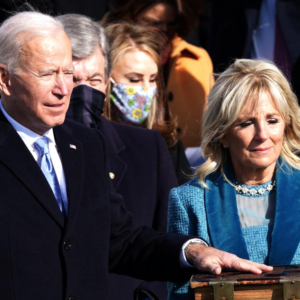On August 25, 2014, President Obama signed additional cuts to the 2014 Food, Farms, and Jobs Bill, colloquially known as the Farm Bill, into law. The Farm Bill, first signed into law in February of 2014, was a particularly controversial piece of legislation, as it made significant cuts to the Supplemental Nutrition Assistance Program (SNAP). SNAP is the modern food stamp program; with over 46 million people enrolled as of May 2014, it is vital as it protects the food security of the American public. However, SNAP has come under fire in recent years. Republican lawmakers want to cut the program’s funding, citing government overreach, while Democrats decry these attempts as negatively impacting the American public, especially its vulnerable populations. The compromise, an $8.7 billion cut over five years, has left both sides unsatisfied and has created a firestorm of discussion over how this will impact families.
At first glance, it seems a bit strange that the SNAP program comes in the same breath as the Farm Bill, which is legislation mainly dealing with agricultural support, trade, and rural development. Though previously a separate government program, SNAP was rolled into the Farm Bill for a few key reasons, one was that food stamps were historically agriculturally dependent. The government bought up a certain percentage of agricultural supplies, which were then distributed to poverty-stricken Americans. The program developed into a more retail-based strategy, providing eligible folks with subsidies to purchase pre-approved food items from licensed retailers. Still, SNAP has remained highly connected to its historic roots as an agricultural program.
Legislatures have continually fostered the relationship between SNAP and the Farm Bill in order to maintain Farm Bill interest for members from urban areas. A congressman from a New York City district, for example, may not be motivated to support or even discuss agricultural policy as a whole. However, with a program like SNAP affecting a large chunk of his constituents, this lawmaker now has a stake in Farm Bill negotiations.
Despite the important relationship between SNAP and the Farm Bill, the nutrition program proved to be one of the largest sticking points in passing the 2014 Farm Bill. The bill required over four years of negotiations between members of the agricultural community, the White House, and Congress. When it came to SNAP, reaching a solution was tenuous at best. Early in the process, Republican house members passed a copy of the bill that made $137 billion in cuts over ten years. Democrats responded with vigor, denouncing the proposal as hurting families. As the messy process of policy making in Washington continued, it became clear that in order to pass Farm Bill as a whole, SNAP cuts would have to be made. USDA, the President, and Senate and House Agricultural Committee leadership worked closely to determine the best way to make cuts without affecting the majority of SNAP beneficiaries. The result, the $8.7 billion decrease in funding we see today, did not fully appease either side, with Democrats saying any cuts are detrimental, while Republicans argue much more needs to be done.
The cuts, though seemingly drastic, will not affect as many beneficiaries as initially expected, because of how they were made. The funding came by closing what is either known as a loophole or program, depending on who you ask, known as the LIHEAP “Heat and Eat” program. Through Heat and Eat, states were able to automatically register impoverished individuals who need assistance paying energy costs for higher levels of SNAP benefit. Through this program, people with as little as $1 in energy assistance were automatically eligible for these enhanced benefits. This program is not particularly widespread; in fact, some sources are reporting this will affect only 15 states and Washington, DC. States can also choose to pitch in their own money to create statewide LIHEAP programs that will protect the interests of the majority elderly and highly disadvantaged people who previously benefitted from this program.
The SNAP cuts were not ideal for many reasons. They made it difficult for people to gain access to necessary aid, to enhance food security. It is generally understood that making sure people are fed consistently enhances the quality of life for everyone involved. Access to food is a human right. However, the Farm Bill was not written overnight. Four years of work, of negotiations, and planning crafted a bill that was designed to protect our food supply as a whole. Without it, there would be no framework for protecting our crops and trade opportunities. Also, the cuts were not made to the SNAP program directly, but rather to a program that only affects a small percentage of beneficiaries. States are still able to provide LIHEAP funds, with a higher required cutoff than $1, and affected people can still apply directly for SNAP funds.
It is hard to justify the deliberate stripping of assistance to some of the country’s most disadvantaged people, but it’s important to note these cuts affect far fewer people than many other proposals would have. It was truly important to pass the Farm Bill this year, as many of the other titles impacted farmers and members of rural communities across the United States. Emergency assistance funding provided money to struggling ranchers facing the drought in California. The President’s Made in Rural America Initiative, announced on the day of the signing, gives small businesses in rural America access to export opportunities, bringing necessary dollars into struggling communities across the country. We can only hope with the next Farm Bill legislatures realize providing access to food is a human right, and that stripping benefits, even from very few, negatively affects the nation as a whole. However, for now we can be thankful that there is a Farm Bill protecting our food supply for years to come.





